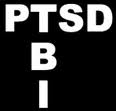Oct
20
PTSD Suffering & Control
Filed Under PTSD, Trauma, Treating PTSD
By Janet J. Seahorn

This may be one of the most important blogs that I have written. Important because we are quickly becoming a people who, due to the recent attention on Post Traumatic Stress, are beginning to lump into the same basket all vets who return from conflict challenged by PTSD.
This is a major dilemma. It is vital that we as a nation, as communities, and as families start to have a more accurate description of the effects of combat trauma. Important because without correct information, we cannot help to mend the minds, hearts, and souls of those who suffer.
For that reason, solid facts through research on PTSD lead to better care. The problem, however, occurs when the media focuses only on those individuals who behave in extreme ways. Ways that make news casts, papers, and internet reading more exciting.
For the vast majority of veterans who return from combat tormented by the memories of war, the battle is within and remains there, silently distressing the individual.
But here is what is key to remember; the majority of vets are not personally or professional “out of control”. In fact, they spend a tremendous amount of time and energy trying to remain in control. For many, the periods of distress are when the person is alone, safe within the confines of house and home, or experiencing a severe physical or family crisis.
For most, the only people who see the anxiety and panic are not the outside world, but rather those within the vet’s inner-most circles: spouses, children, siblings, parents, and very close friends.
There are already many young (and some older vets) who are refusing to acknowledge they have a problem, or seek medical interventions even when they realize they need it. And why would they? Fearing they will be labeled and thrown into that “media basket” of dysfunction, they prefer to maintain a mask of silence. This isn’t acceptable, nor is it effective in mending the situation.
Yes, PTSD is a reality for many in our world, not just combat vets. For sure, it is a challenge like any “reordering” of the mind and body. Yet, most individuals move forward to live productive, successful lives. And if the individual gets appropriate medical and professional attention, that life and those who are closest to him/her, the living becomes immensely easier.
So let’s begin to write and tell stories of these quiet, courageous men and women. Stories of heroes and heroines who survive and manage to prosper in many areas of their lives; appreciating the fact that to be a hero requires an extraordinary act of bravery within an ordinary human spirit.
Comments
One Response to “PTSD Suffering & Control”


Great post! My dad, a WWII paratrooper, struggled with his postwar demons for years, and did so without recognition, since there was no PTSD diagnosis until 1980. The VA characterized his problems at various times as anxiety neurosis, character disorder and “inability to digest his wartime experiences” My website and blog, Legacy of War, at http://www.dutchschultz.blogspot.com are attempts to bring the story of these warriors who struggled to regain some equilibrium.